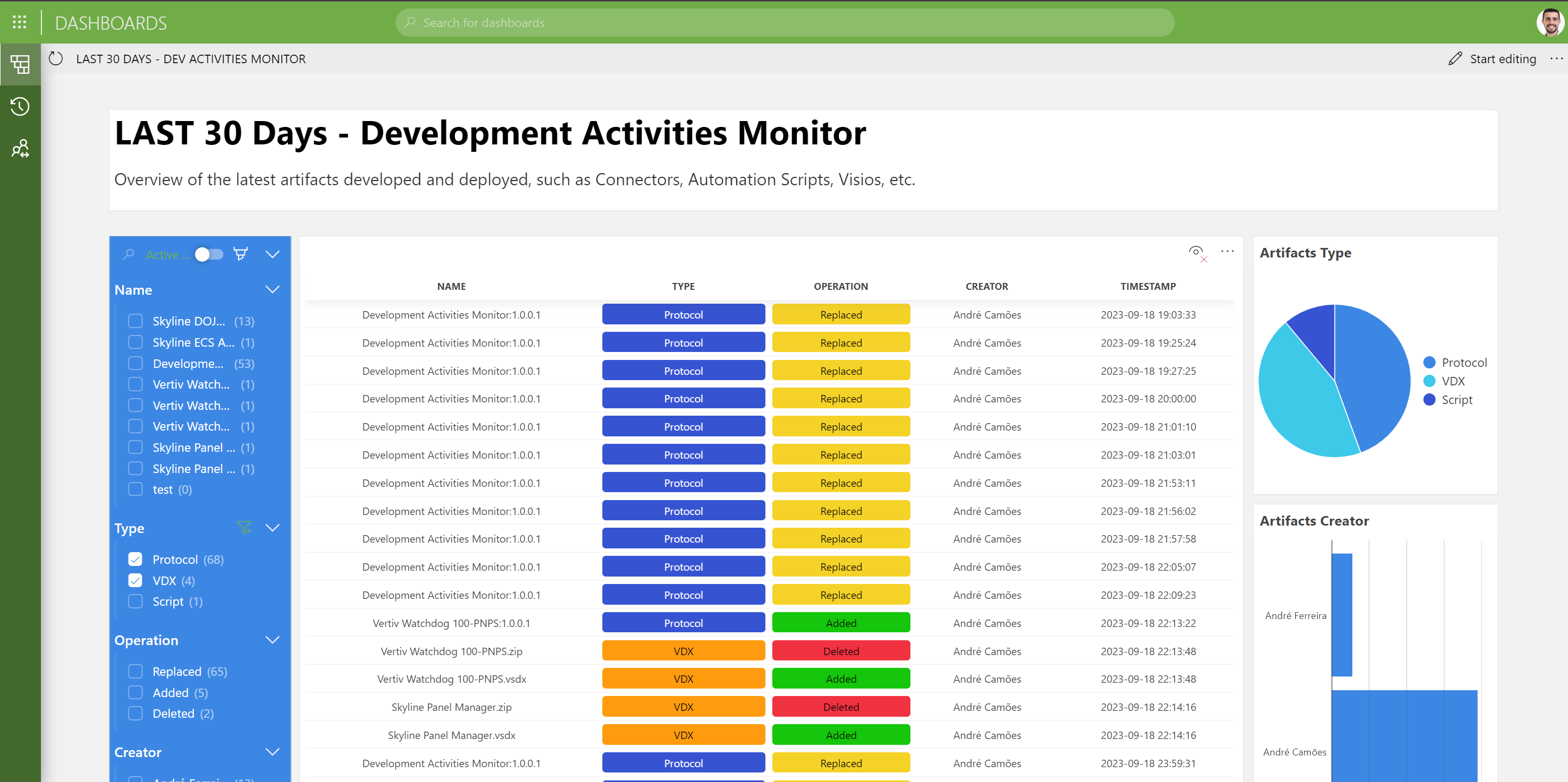Dear Community,
I want to seek your advice on possible ideas for the following use case: “As a DataMiner Operator, I wish to have visibility into new developments deployed in the last month in my environment, such as automation scripts, connectors, visualizations, dashboards, low-code applications, etc… Ideally, this information should be available in a table that could allow me afterward to display it in a dashboard.
Do you have any suggestions on how I can implement this use case? Where can I quickly retrieve this information, or do you have any tips and tricks that could streamline and accelerate the development of this use case?
Hi André, you could also consider retrieving some sort of report based on the information events. Example below with some scripts, protocols and visios added/edited:
I agree with this. Information events holds a ‘detailed’ audit trail of most actions performed on a system. A report can be carved out looking at notable events of interest.
Quick update: As you can see, through the processing of information events, it was possible to create the dashboard that I present below, which basically provides me with a very simple and direct overview of what has been developed and deployed in my system (e.g., Connectors, Automation Scripts, Visios, etc.) in the last 30 days.

It’s amazing how easy it is to create such appealing dashboards!💪🔝
Thanks for your help Dojo Community.
This is amazing!
Is this something that can be made available in the catalog for other users to deploy 🙂
Very interesting observation! Definitely worth some careful thoughts and considerations. And it will become more and more relevant towards the future as evolution becomes more and more continuous.
And I’m personally thinking DOM now. I have seen already people that made an App for Change & Release Management. In their case it was about changes in their operational systems, so the configuration of the underlying ecosystem (change of a channel config / line-up for example). But that’s essentially also what you are talking about in a DataMiner System. So I’m wondering if we should not make some sort of standard App for the DataMiner Community that could be used to collaborate with bigger teams and to keep track of changes, in what stage they are, etc. That data could be be used to inform users of the platform also (as the data would be easily accessible throughout DataMiner), with a synopsis of what goes into production. In the same effort, one could maybe also consider using it as some sort of documentation system, as I have the feeling that this is lacking often (e.g. users get a great app, or new workflow, but they not a lot of documentation on how it works and how it is supposed to be used). Maybe this can somehow be combined with a GitHub source base (similar to dataminer.docs), because I love that set-up as it enables anybody to contribute to the documentation (suggest corrections, add missing information).
Great topic you brought on here! Because at the end of the day, it is very much also about efficiently communicating with everybody involved, the Devs and the Ops of the DevOps team.
Hi Andre,
I believe this type of information is already available in the Admin App
In the deployment section, you can retrieve the list of artifacts deployed in your cluster (scripts, connectors, application packages). Maybe this will cover your use case?
Thanks for the feedback Miguel. Indeed, as described in the documentation, deployments via Catalog or GitHub Actions will be listed here. However, there are two main issues that I’m considering with the proposed approach:
1) I don’t have a way to obtain this data from the admin app through code.
2) In most cases, deployments are done locally, such as installing a dmapp or dmprotocol. These deployments will not appear in the admin app.
Nevertheless, great suggestion shared! Could be useful in othercases 😉
That could work indeed for a first MVP! Thanks Tiago 😉 Let’s code!